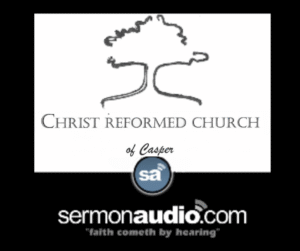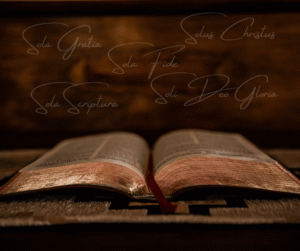Christ is Made the Sure Foundation
1 Christ is made the sure foundation,
Christ the head and cornerstone,
chosen of the Lord and precious,
binding all the church in one;
holy Zion’s help forever
and her confidence alone.
2 All that dedicated city,
dearly loved of God on high,
in exultant jubilation
pours perpetual melody;
God the One in Three adoring
in glad hymns eternally.
3 To this temple, where we call thee,
come, O Lord of hosts today:
with thy wonted loving-kindness
hear thy people as they pray;
and thy fullest benediction
shed within its walls alway.
4 Here vouchsafe to all thy servants
what they ask of thee to gain,
what they gain from thee forever
with the blessed to retain,
and hereafter in thy glory
evermore with thee to reign.
5 Laud and honor to the Father,
laud and honor to the Son,
laud and honor to the Spirit,
ever Three and ever One,
One in might, and One in glory,
while unending ages run.
This hymn is a song about Zion. “Zion” is a rich and complex set of metaphors in Scripture, starting from the fact that Zion is the name of the hill on which Solomon built the temple, and was the center of God’s presence in Israel for many centuries. It is the place where God and His people would meet. As such, it becomes a figure for the people of Israel as a whole, or in the New Testament, the New Israel, the Church.
Our hymn uses a bold and confident tune, celebrating the joy and assurance that the people of God can have, knowing that He is in our midst. In Isaiah’s day, Jerusalem was left alone and preserved from the attack of the Assyrians which engulfed the rest of Judah and, indeed, the whole region, which demonstrated God’s ability to care for and protect His people. Unfortunately, the people of Israel misunderstood this event, believing that Jerusalem could never be taken by foreign conquest. Jeremiah warned them against this error. The people of Israel had abandoned God, neglected His worship, and chased after foreign gods. Therefore they were not the people of God anymore. “Zion” being under God’s protection was never about a place, but about a people, the people who trusted and relied on God, who met with Him and worshiped Him. Those people are certainly under God’s protection and can trust Him in all events of life.
The hymn starts with a celebration of the establishment of Christ as the foundation of the Church, the new temple, the new spiritual Israel which God had always foretold, which sprouted from the cut-down stump of the old (to mix the metaphors). The true Church of Jesus Christ must always be united—perhaps not in outward organization but in true spiritual essence. Jesus “bind[s] all the church in one (verse 1).” He told His disciples that He would be with them until the end of the age, and He is even now at the right hand of the Father mediating for us. That is a source of great confidence for the believer.
The second verse celebrates the church as a place of praise for the Triune God, praise which will last forever. It is the great joy of the Christian to have the opportunity to praise and worship the glorious God, and praise is at its best when it is shared. When one has a great experience of some kind—a great meal, a particularly enjoyable movie, or anything like that—one wants to share it with others. This fact demonstrates the truth that people are fundamentally communal, made to be a people, not just persons. The church is a body of people, gathered together to share that greatest experience of all, the experience of knowing God.
The third verse calls on God to receive the worship of His people, to come to His temple to hear His people worship. God is gracious and merciful, and receives our worship with “lovingkindness” even though our worship falls so far short of His true merits. The writer also prays for the “benediction,” meaning literally a “good word,” a blessing from God. With the blessing of God on His people, we know that nothing can harm us, and even the suffering we experience in this life is part of God’s perfect purpose. The benediction pronounced at the end of each service is not well-wishes on the part of the pastor, but rather is the promise of God Himself to all those who put their trust in Him.
Verse four asks God to “vouchsafe” to His people the promised blessings. This is a call to God to work assurance of faith in us, the sure confidence that the promised blessings will come to pass. This assurance is so important, for it is our only true protection from the snares of the world. The lures, seductions, and threats of the world will have no power over us when we know that far greater things are secured for us in the eternal Kingdom than anything the world can offer or take away. We will be kings and priests of a glorified creation, enjoying all God’s good promises, and the greatest joy of all, God Himself, forever. The assurance of God’s promises, as verse four recognizes, is God’s gift to us and not something we can work up on our own.
The final verse, as early Christian hymns often do, praises the Triune God in each Divine Person, Father, Son, and Spirit. Many of the early Church fathers recognized the importance of hymns as pedagogy, and knew that the doctrine that people sung would become deeply embedded in their hearts. Paul calls on us to teach and admonish one another in the singing of psalms, hymns, and spiritual songs (Col. 3:16). With the Arian heresy, which denied the Trinity, still running rampant when this hymn was originally written in the seventh century AD, it therefore serves a wonderful teaching purpose, as well as a doxological purpose, to end the hymn with a praise to God as Three in One, distinct as Persons, but One in power and glory, forever.


Comments are closed, but trackbacks and pingbacks are open.